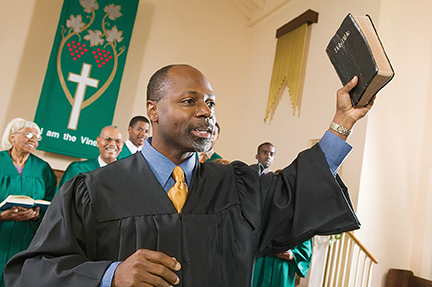
By George M. Hillman
![]() Is the purpose of the seminary to train theologians or practitioners?
Is the purpose of the seminary to train theologians or practitioners?
For the last 50 years, theologians, pastors and congregations have been debating this very question. Indeed, higher education at-large is questioning the relationship between theoretical knowledge and practical experience. Is the purpose of education to help the student to think critically or to function practically?
To be effective, a seminary has to do both.
 Part of the role of theological education is to prepare students to think biblically and critically. Too much ministry today lacks strong theological roots.
Part of the role of theological education is to prepare students to think biblically and critically. Too much ministry today lacks strong theological roots.
At the same time, the theological school needs to prepare students to take the vast theological knowledge from the classroom and translate it for the cultures and modern contexts into which they’ve been called.
Moving from theory to the real world
The seminary classroom equips students with essential foundational truth, but it can only take them so far. More than ever, students need practical ministry experiences that link theory and practice. Instead of learning only in the isolation of the classroom, field-based education (sometimes called internships or residencies) happens within the “normative worshiping community of faith.” The student gets a chance to work in a real-world ministry setting and then reflects on that experience with a mentor.
This isn’t just busy work or cheap labor; it’s a fundamental element of intentionally developing of a future leader. A great internship or residency experience places a student in an environment where God can work through him or her in the lives of other people and — more importantly in some ways — where God can work in the student’s own life to develop calling, character and competencies.
The church as a lab for learning
Generally, the more practical the lessons a student needs to learn, the more integrated into real life the educational experience needs to be. Some of the most important things a minister does are best learned on the job.
Congregations and other ministry settings become a laboratory for ministry, making them vital collaborators with seminaries in developing leaders. Understanding organizational culture, learning leadership and management skills, sharpening people skills, identifying personal strengths and assets, and identifying potential areas of character downfall are all practical lessons learned in an internship or residency.
The seminary and the church in partnership

Field-based education helps to overcome the classroom teacher’s inability to create real-world learning experiences in the formal classroom setting. The academics of theological education can help to lay the foundation for a biblical worldview and the basic tools of the ministry trade, but the theoretical needs to be married with the practical in the leadership laboratory in the field.
God calls students to schools to learn, but a school’s values and curriculum need to reflect this balance between theory and practice. When seminaries continue to collaborate with the local church and ministry organizations in developing the next generation of leaders, they develop leaders who are sound — doctrinally and practically.
To this end, my own institution offers a year-long Ministry Residency [ www.dts.edu/ministryresidency ] that enables ministry leaders who are already in full-time vocational ministry an opportunity to earn up to 12 credit hours in their current ministry context. Bookended by a weeklong campus experience in the fall and the spring, the learning includes work in a ministry context with on-site mentoring and real-time video cohort meetings with other ministry leaders. Instead of coming to the classroom to learn, we help students learn in the “real world classroom” they’re already in.
This way, we don’t rely on the church or the seminary, the theologian or the pastor. Instead, a good internship offers a safe place for future ministry leaders to grow, develop and learn in — and for — the church.
George M. Hillman is Chair of Educational Ministries and Leadership; Professor of Educational Ministries and Leadership at Dallas Theological Seminary.


